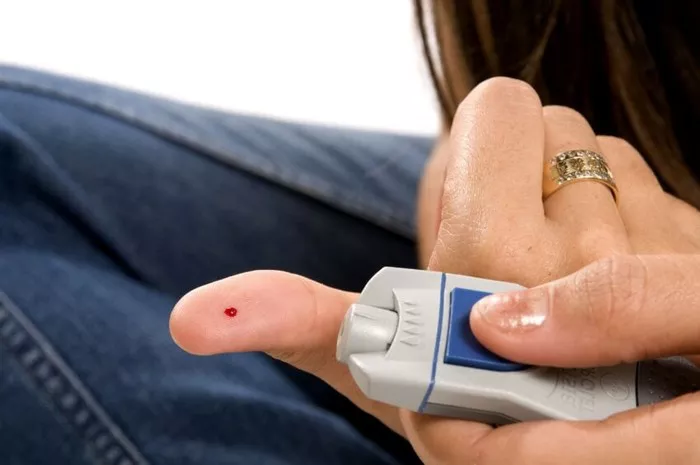Medical Overview: Understanding Type 1 Diabetes
Type 1 diabetes (T1D) is an autoimmune condition characterized by the body’s immune system attacking and destroying insulin-producing beta cells in the pancreas. Unlike type 2 diabetes (T2D), which is often associated with insulin resistance and can be managed or even reversed with lifestyle changes, T1D is a lifelong condition requiring constant insulin therapy. The management of T1D involves careful monitoring of blood glucose levels and administering insulin to maintain these levels within a target range.
Ketogenic Diet Basics
The ketogenic diet, often referred to as the keto diet, is a high-fat, low-carbohydrate eating plan designed to induce a state of ketosis. Ketosis is a metabolic state where the body, deprived of glucose from carbohydrates, begins to burn fat for fuel, producing ketones in the process. The typical macronutrient ratio for a keto diet is approximately 70-75% fat, 20-25% protein, and 5-10% carbohydrates.
Risks and Benefits of the Keto Diet for Type 1 Diabetics
Potential Benefits
Improved Blood Sugar Control: By significantly reducing carbohydrate intake, the keto diet can help stabilize blood glucose levels, potentially leading to fewer insulin spikes and drops.
Reduction in Hypoglycemia Episodes: Some T1D patients report fewer episodes of low blood sugar, which can be a common issue with high-carb diets.
Weight Management: The keto diet can support weight loss, which might benefit overall health and reduce insulin requirements.
Potential Risks
Diabetic Ketoacidosis (DKA): The most significant risk for T1D patients on a keto diet is DKA, a dangerous condition resulting from extremely high levels of ketones in the blood. This can occur if insulin levels are insufficient, leading to severe hyperglycemia and acidosis.
Nutritional Deficiencies: The restrictive nature of the keto diet can lead to deficiencies in essential nutrients if not carefully planned.
Hypoglycemia: While the diet can reduce hypoglycemia episodes, the risk remains if insulin dosages are not properly adjusted.
Blood Sugar Management on a Keto Diet
A ketogenic diet can have a profound impact on blood sugar control and insulin requirements for individuals with T1D. Reduced carbohydrate intake typically necessitates lower insulin doses, but this must be carefully managed to prevent hypoglycemia or DKA. Continuous glucose monitoring (CGM) and regular blood ketone testing become crucial.
Nutritional Ketosis vs. Ketoacidosis
Understanding the distinction between nutritional ketosis and ketoacidosis is vital for T1D patients considering the keto diet. Nutritional ketosis is a safe, controlled state achieved through diet where ketone levels are moderately elevated (0.5-3.0 mmol/L). In contrast, ketoacidosis involves dangerously high ketone levels (usually above 10 mmol/L) and occurs in the presence of high blood glucose, leading to a medical emergency.
Medical Supervision: Importance of Professional Guidance
Before starting a keto diet, T1D patients must consult healthcare professionals, including an endocrinologist and a dietitian. These experts can provide tailored advice, help adjust insulin therapy, and ensure regular monitoring of blood glucose and ketone levels. Close medical supervision can prevent complications and ensure a balanced approach to dietary changes.
Personal Stories and Studies
Research on the ketogenic diet’s impact on T1D is limited but growing. A notable study published in Pediatrics in 2018 followed a group of T1D patients on a keto diet for 2.5 years. The study found that participants experienced significantly improved A1C levels (a marker of long-term blood glucose control) and reported fewer severe hypoglycemic events.
Personal anecdotes also highlight varied experiences. Some T1D individuals report remarkable improvements in blood sugar stability and quality of life, while others face challenges such as difficulty maintaining the diet long-term or managing blood sugar during illness or stress.
Dietary Guidance: Implementing the Keto Diet Safely
For T1D patients, safely implementing a keto diet involves careful planning and constant vigilance. Here are some practical tips:
Start Slow: Gradually reduce carbohydrate intake to allow the body to adapt.
Monitor Closely: Use CGM devices to track blood glucose and ketone levels regularly.
Balanced Meals: Ensure meals are nutrient-dense, incorporating a variety of low-carb vegetables, high-quality proteins, and healthy fats.
Hydration and Electrolytes: Stay well-hydrated and consider supplements for electrolytes like sodium, potassium, and magnesium.
Regular Check-Ins: Maintain regular appointments with healthcare providers to adjust insulin dosages and monitor overall health.
Warning Signs: Recognizing DKA and Hypoglycemia
Diabetic Ketoacidosis (DKA) Symptoms:
Excessive thirst and urination
Persistent high blood glucose levels
High ketone levels in urine or blood
Nausea, vomiting, and abdominal pain
Fruity-smelling breath
Rapid breathing
Confusion or loss of consciousness
Hypoglycemia Symptoms:
Shakiness or trembling
Sweating
Confusion or difficulty concentrating
Irritability
Rapid heartbeat
Fatigue
Seizures (in severe cases)
Key Points to Consider
Understanding Type 1 Diabetes
T1D is an autoimmune condition necessitating lifelong insulin therapy. Its management requires precise balancing of insulin doses with dietary intake and physical activity.
Keto Diet Mechanism
The keto diet shifts the body’s primary fuel source from carbohydrates to fats, inducing ketosis. This metabolic state can offer benefits like stabilized blood glucose levels and reduced insulin needs.
Evidence-Based Research
Studies and personal experiences indicate potential benefits of the keto diet for T1D, such as improved A1C levels and reduced hypoglycemia episodes. However, the risk of DKA remains a critical concern.
Safety Precautions
Avoiding DKA involves regular monitoring of blood glucose and ketone levels and maintaining appropriate insulin therapy. Professional guidance is essential.
Lifestyle Considerations
Lifestyle factors such as exercise, stress, and illness can impact blood glucose levels and must be carefully managed alongside dietary changes.
Healthcare Collaboration
Continuous collaboration with a diabetes care team is crucial for safely implementing and maintaining a keto diet in T1D management.
Conclusion
The ketogenic diet can offer significant benefits for some individuals with type 1 diabetes, particularly in stabilizing blood sugar levels and reducing insulin requirements. However, the risks, especially the potential for diabetic ketoacidosis, necessitate careful planning and medical supervision. Each T1D patient is unique, and what works for one individual may not work for another. Thus, ongoing collaboration with healthcare providers and a personalized approach to diet and diabetes management are imperative for those considering the keto diet.



























